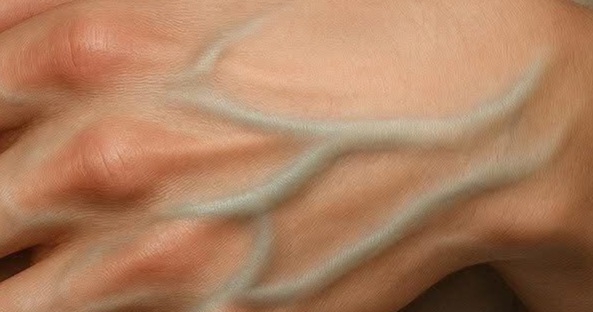Why Do Some People Have Visible Veins? Understanding the Causes and When to Seek Help
Why Do Some People Have Visible Veins?
Veins play a crucial role in circulating blood throughout the body. If you’ve noticed visible veins and are wondering why, there’s often no need to worry. While prominent veins can sometimes signal underlying health issues, they are frequently caused by natural factors that pose no health risk. Below, we explore the most common reasons for visible veins, backed by medical insights.
Common Causes of Visible Veins
1. Skin Type
Fair or thin skin can make veins more noticeable. As we age, the fat layer beneath the skin diminishes, causing veins to become more prominent, especially on hands, legs, and other areas.
2. Natural Vein Position
Some individuals naturally have veins closer to the skin’s surface, making them more visible.
3. After Exercise
Physical activity increases blood flow, causing veins to swell and become more prominent. This is temporary and subsides post-workout.
4. During Pregnancy
Pregnancy increases blood volume, making veins work harder and become more visible. This is usually harmless and fades after childbirth.
5. Low Body Fat
Lean individuals have less subcutaneous fat, which can make veins stand out more prominently.
When to Consult a Doctor
Visible veins are typically harmless, but seek medical advice if accompanied by symptoms like chest pain, shortness of breath, ulcers, or swelling. These could indicate conditions like varicose veins or thrombophlebitis.
Causes of Prominent Hand Veins
- Aging
Skin loses elasticity and fat, making veins more visible. - Vascular Diseases
Dilated or inflamed blood vessels can cause prominent veins. - Weight Loss
Significant weight loss reduces the fat layer, making veins more noticeable. - Physical Activity
Intense exercise temporarily increases vein visibility. - Genetic Factors
Inherited vein issues can cause prominence. - Hot Weather
Heat expands blood vessels, making veins more visible.
Treating Prominent Hand Veins
Start with a vascular specialist to rule out health issues. If cosmetic, consult a dermatologist. Consider lifestyle changes like hydration and skincare before opting for treatments.
For more health insights, explore our related articles:
Enjoy!






